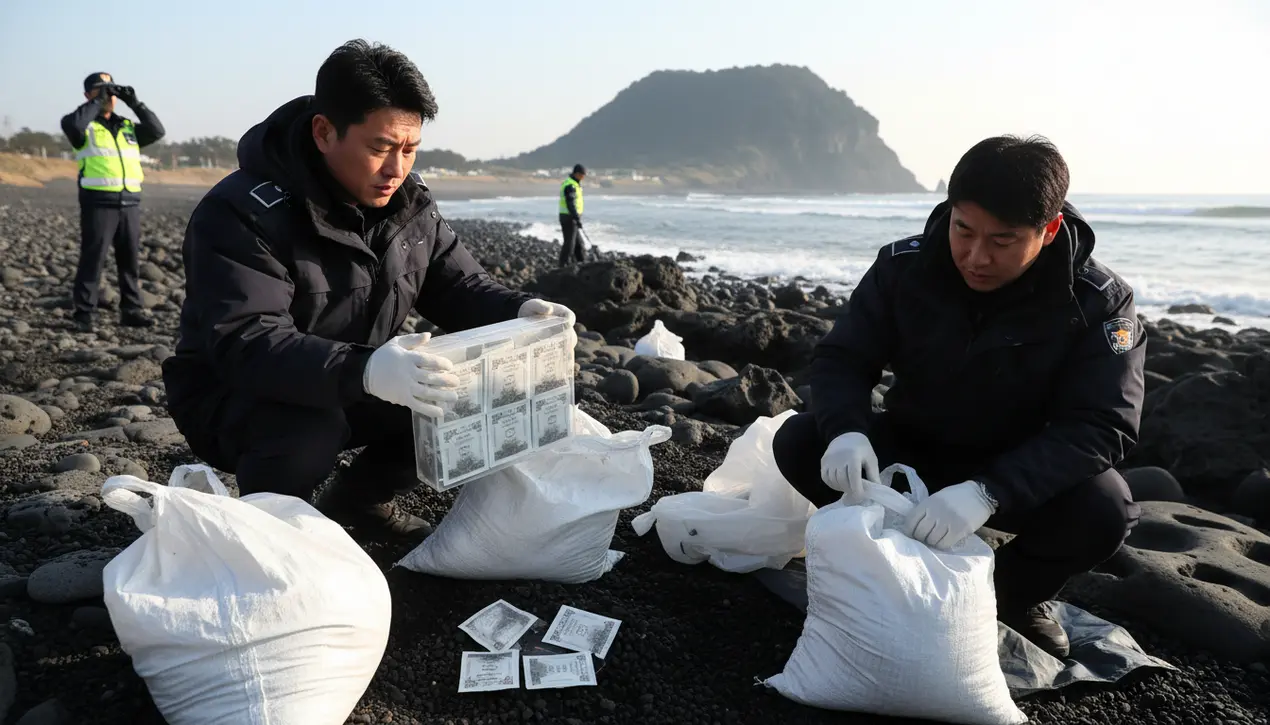
Politicscorruption & scandals
Ketamine Disguised as Tea Found on Jeju Island.
OL
Oliver Scott
4 hours ago7 min read
The tranquil shores of Jeju Island, South Korea's premier tourist destination, have become the unlikely frontline in a sophisticated narcotics interdiction operation, revealing a chilling new methodology in transnational drug trafficking. Authorities confirmed on Wednesday that multiple waterproof packages containing approximately 20 kilograms of ketamine, meticulously disguised as commercial Chinese tea bags, were discovered washed up along the coastline, specifically at Gwangchigi Beach in Seogwipo—a location synonymous with honeymooners and family vacations.This isn't merely a isolated incident of contraband; it's a calculated operational gambit, one that echoes historical narcotics smuggling routes through maritime dead drops, yet with a modern, consumer-grade camouflage designed to bypass both customs and casual observation. The immediate risk scenario is clear: a distribution network intended to receive these parcels was either disrupted or the drop was mis-timed, turning a covert transfer into a public security crisis.The strategic implications are profound. Jeju Island’s visa-free access for many nationals and its high tourist traffic make it a vulnerable conduit for syndicates looking to infiltrate the broader South Korean and potentially Japanese markets.From a risk analysis perspective, this event signals a potential shift away from traditional port interdiction towards leveraging natural geography and tourism infrastructure, a low-cost, high-deniability method that complicates law enforcement's predictive modeling. We must consider the precedent of the 'Pacific Blob' shipments—where floating containers of narcotics have been recovered off Pacific coastlines—and assess whether this represents a new, sustained route.The choice of ketamine is also analytically significant; its dual-use potential in medical settings and rising recreational demand in East Asia makes it a high-value commodity. The immediate consequence is a severe reputational blow to Jeju, potentially triggering heightened security screenings that could dampen the tourism economy, while the long-tail risk involves normalized drug availability leading to broader social and public health deterioration. This incident should prompt a regional reassessment of coastal surveillance protocols and cross-border intelligence sharing with China, the suspected origin, to dismantle the network before this method becomes a standardized template for regional traffickers.
#featured
#drug trafficking
#ketamine
#Jeju Island
#South Korea
#coastguard
#Chinese tea
#tourism impact
Stay Informed. Act Smarter.
Get weekly highlights, major headlines, and expert insights — then put your knowledge to work in our live prediction markets.
Comments
Loading comments...
© 2025 Outpoll Service LTD. All rights reserved.